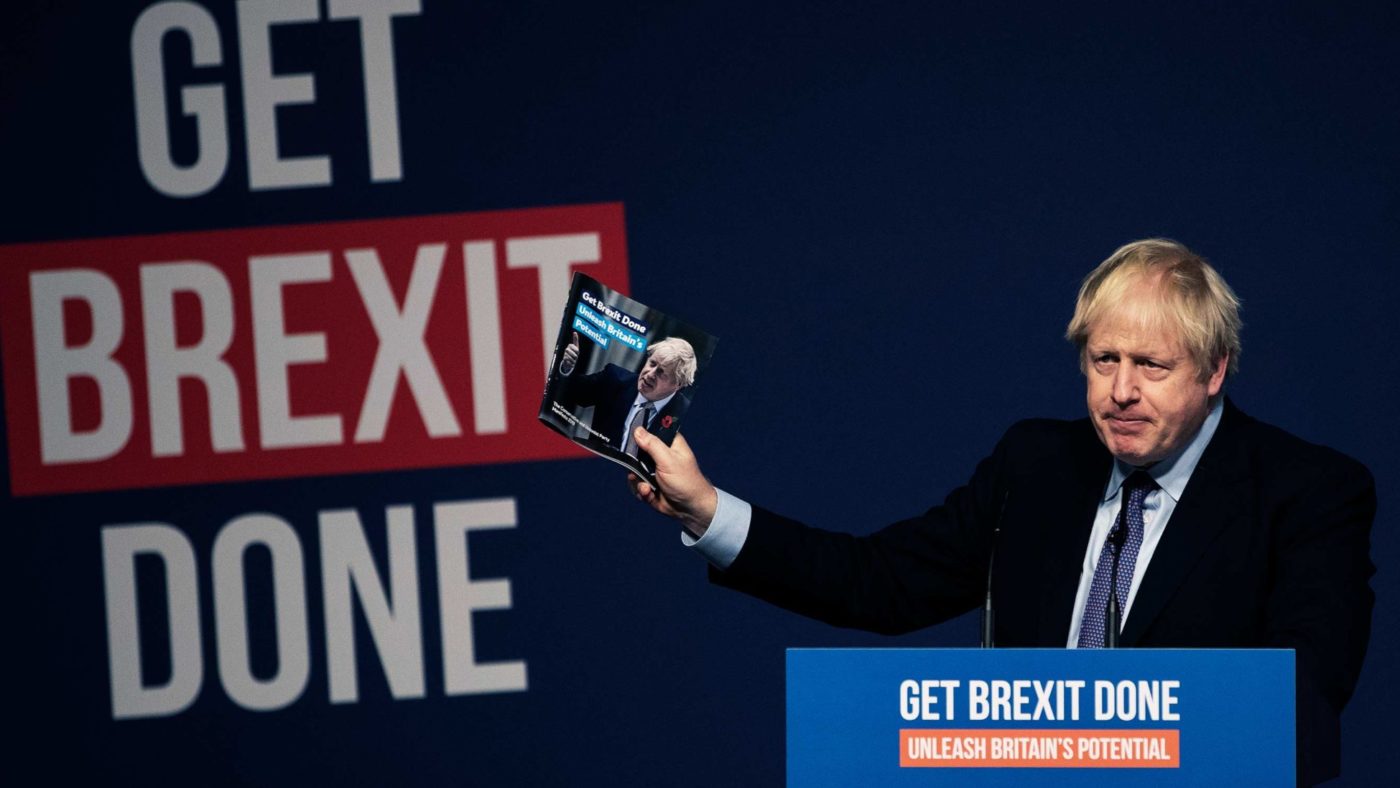The Conservative manifesto launch launch was dominated by the theme of getting Brexit done to allow the Government to refocus on the ‘people’s priorities’, including the NHS, schools, policing and investment in infrastructure. The latest opinion polls suggest this is an attractive pitch. But can we afford it? I’d give the Conservatives’ fiscal plans two cheers, based on three main points.
First, the big picture. If the Conservatives stick to their new fiscal rules (and experience of all governments suggests this is an important ‘if’), there should be scope for a reasonable increase in public spending, while leaving room for some meaningful tax cuts. In particular, these rules should allow another £100 billion in public investment over five years, and still keep borrowing and debt at comfortable levels. The Conservatives’ overall approach is more relaxed than some fiscal hawks might like, but the contrast with Labour is stark.
The economic backdrop is also crucial. The Liberal Democrats have made a lot of the notional £50 billion ‘Remain Bonus’ that they claim would result from trampling over basic democratic principles and simply ignoring the result of the 2016 EU referendum. But there’s rather more chance of an economic bounce from the immediate reduction in political uncertainty that would follow the election of a Conservative majority government committed to ‘Get Brexit Done’, especially if the alternative is a government led by Mr Corbyn.
Second, the fiscal credibility of the Conservatives is restored a little by their avoidance of huge spending pledges. The Labour manifesto itself was bad enough, but we now have to add £58 billion for the cost of compensating women – regardless of actual need – for increases in the state pension age announced back in the 1990s and 2000s (the 2010-2015 Coalition government only accelerated the transition). This is on top of the costly Labour pledge to keep the state pension age at 66 and shreds any remaining fiscal credibility that they had left.
The costings document released alongside the Conservative manifesto, like the manifesto itself, was also much shorter than the Labour version. That’s surely a good thing for those who believe in a small state. Indeed, the Sunday Telegraph was left to lead with the plan to end hospital car parking charges in England for protected groups, which would cost the Treasury less than £100 million a year. (Incidentally, this plan, while more bureaucratic, is also far more sensible than Labour’s policy of ending charges completely. Limited parking spaces must be allocated and financed somehow. A ‘free for all’ policy would mean less chance of hospital parking for those that really need it.)
Third, and for some the most important point, there is still plenty of blue water between the Conservatives and both Labour and the Liberal Democrats on tax. Admittedly, there is not much yet from the Tories in terms of tangible tax cuts. But the increase in the threshold for paying National Insurance Contributions (NICs) is a clear signal of intent. The decision to put the planned reduction in corporation tax on hold is also hopefully only a temporary pause. Lowering the burden of taxation on businesses ultimately benefits everybody, including employees and customers, as well as all shareholders, whether big or small.
The Conservatives have also committed to a Triple Tax Lock, which is a pledge not to raise the rates (my emphasis) of income tax, national insurance and VAT. As it happens, I’m not much keener on this than I am on the Pensions Triple Lock, which is increasingly hard to justify. The Triple Tax Lock still leaves room for stealth increases in all of the specified taxes, either by not raising allowances or by expanding their scope, or it may simply divert any future increases in the tax burden to other sources of revenue. But again, it is at least a clear signal of intent.
It’s a shame, then, that the Conservatives seem determined to press ahead with the Digital Services Tax (DST). This might be a popular way to tap into hostility towards the tech giants, but it is still a bad tax, based on dodgy economics and flimsy evidence, and costly to implement. It is not even certain that a de facto international tariff like the DST would comply with WTO rules, given that it would mainly target US companies. But, again, Labour and the Liberal Democrats would both go much further.
So why do I only award the Conservatives two cheers, rather than three? There are just a few too many measures that are driven more by politics than economics, such as the DST and the Pensions Triple Lock. Even the increase in the NICs threshold is not necessarily the best way to target help at low-income households, since almost everyone paying this tax benefits equally, whether rich or poor. There was little, if anything, on the difficult long-term choices that still need to be made, notably on funding the NHS and social care for an ageing population.
Nonetheless, in a general election everything is relative. Compared to the economic illiteracy of the Labour plans, the Conservatives are my clear winners.
Click here to subscribe to our daily briefing – the best pieces from CapX and across the web.
CapX depends on the generosity of its readers. If you value what we do, please consider making a donation.


